Recent Blog Posts
Can I Refuse a Field Sobriety Test in California?
 When a police officer suspects you of driving under the influence, the officer may ask you to step out of your vehicle and do a series of tests on the side of the road. These are called field sobriety tests. Many drivers wonder whether they have to take them.
When a police officer suspects you of driving under the influence, the officer may ask you to step out of your vehicle and do a series of tests on the side of the road. These are called field sobriety tests. Many drivers wonder whether they have to take them.
Field sobriety tests are designed to help officers tell whether you are drunk or high, but they are not always accurate. Factors like nervousness, uneven pavement, or even bad weather can affect your performance. If you fail a field sobriety test in 2026 and are charged with a crime, you need a Sonoma DUI defense lawyer.
How Can a DUI Conviction Affect Your Ability to Get a CDL License?
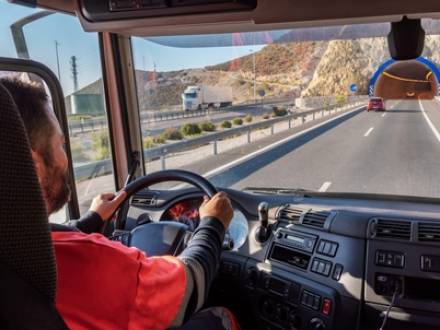 In California and every other state, federal law prohibits commercial vehicle drivers from driving with a blood alcohol concentration of more than 0.04 percent. If this happens to be a CDL driver's first DUI, they might get off "easy" and only lose their CDL license for a year.
In California and every other state, federal law prohibits commercial vehicle drivers from driving with a blood alcohol concentration of more than 0.04 percent. If this happens to be a CDL driver's first DUI, they might get off "easy" and only lose their CDL license for a year.
For the person whose job requires a CDL license to make a living, this is anything but an easy penalty, especially when combined with the potential criminal consequences of jail time plus fees and fines. And for those thinking about getting a CDL license who are unsure whether a prior DUI will affect them, the answer is, "It depends."
Whether you are trying to get a first-time CDL, fighting a DUI to prevent a CDL loss, or wanting to get back a CDL following a DUI conviction, you need an aggressive San Francisco CDL defense lawyer.
California DUI: Is There Any Way to Keep Your CDL License?
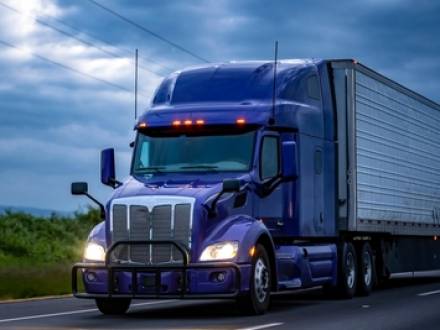 A DUI is much more than just a criminal charge if you are a commercial driver in California; it is often a career-ender. Under California Vehicle Code Sections 15302, a single DUI conviction can result in mandatory CDL disqualification. This is true even if you were in your own personal vehicle and off the work clock. While California CDL DUI laws are unforgiving and strict, they are not absolute.
A DUI is much more than just a criminal charge if you are a commercial driver in California; it is often a career-ender. Under California Vehicle Code Sections 15302, a single DUI conviction can result in mandatory CDL disqualification. This is true even if you were in your own personal vehicle and off the work clock. While California CDL DUI laws are unforgiving and strict, they are not absolute.
There are certain defenses – particularly at the DMV APS hearing – that can potentially prevent mandatory disqualification and preserve your livelihood. A skilled San Francisco, CA DUI attorney can build a solid defense on your behalf that could result in a dismissal of the charges or having the charges dropped to a lesser offense.
Potential Consequences of a DUI Guilty Plea in California
 Following California charges for DUI, the prosecutor in your case may immediately offer a "deal." This deal could include allowing you to avoid jail and get on with your life in return for a guilty plea. It is easy to see how this could sound appealing. For most people, being charged with DUI is anxiety-inducing, stressful, and embarrassing. Getting it over quickly can certainly sound like the best approach.
Following California charges for DUI, the prosecutor in your case may immediately offer a "deal." This deal could include allowing you to avoid jail and get on with your life in return for a guilty plea. It is easy to see how this could sound appealing. For most people, being charged with DUI is anxiety-inducing, stressful, and embarrassing. Getting it over quickly can certainly sound like the best approach.
Unfortunately, this type of quick relief could end up costing you far more than you might imagine. In the state of California, a DUI conviction triggers a litany of consequences, both immediate and long-term. It is crucial that you fully understand what rights you are giving up, when a guilty plea might actually make sense, and how a highly experienced Richmond, CA DUI attorney can negotiate a better alternative.
What California Laws Govern DUI Charges?
There are two primary DUI statutes in California: Vehicle Code Section 23152(a) and Vehicle Code Section 23152(b). These statutes discuss the illegality of driving while impaired, and that a 0.08 percent BAC is the legal limit in the state. A first-time DUI in California is usually a misdemeanor, barring any enhanced penalties. First-offense DUI penalties in the state include:
Is Rising Blood Alcohol a Valid Defense for California DUI?
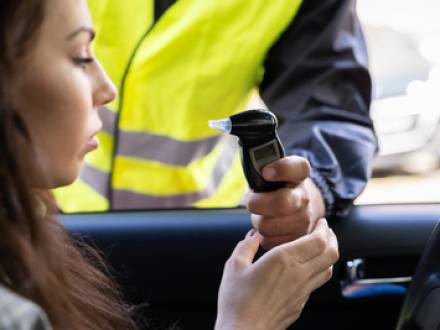 A BAC reading that is at or above the legal limit does not always reflect an individual’s level of impairment while behind the wheel. In the state of California, DUI (California Vehicle Code Section 23152) charges are often based on chemical test results taken after an arrest, even though alcohol levels in the bloodstream continue to rise after a driver has stopped drinking.
A BAC reading that is at or above the legal limit does not always reflect an individual’s level of impairment while behind the wheel. In the state of California, DUI (California Vehicle Code Section 23152) charges are often based on chemical test results taken after an arrest, even though alcohol levels in the bloodstream continue to rise after a driver has stopped drinking.
This is known as "rising blood alcohol" and can be a defense to DUI charges in some instances. Essentially, the rising blood alcohol defense says that your BAC was below the legal limit (0.08 percent) while you were driving, even though the BAC test later showed a higher level.
Since alcohol is not instantly absorbed into the bloodstream, a defense attorney would need to prove – through expert witnesses and a detailed analysis of the timeline – that your body was still absorbing alcohol while you were driving. This would render the BAC test later inaccurate. A skilled Sonoma, CA DUI attorney can help you understand how the rising blood alcohol defense works and whether it applies in your case.
DUIs Do Not Always End at the Dock: Boating Under the Influence
 A fun, sunny day on California waters can quickly turn into a legal nightmare when a boat operator is cited for Boating Under the Influence, or BUI. BUI laws in the state are just as strict as DUI laws, which can be a shock for a boat operator. Whether you are operating a speedboat, a sailboat, or even a jet ski, law enforcement can stop you and administer regular sobriety tests.
A fun, sunny day on California waters can quickly turn into a legal nightmare when a boat operator is cited for Boating Under the Influence, or BUI. BUI laws in the state are just as strict as DUI laws, which can be a shock for a boat operator. Whether you are operating a speedboat, a sailboat, or even a jet ski, law enforcement can stop you and administer regular sobriety tests.
A BUI conviction can come with severe fines, potential jail time, and may even affect your regular driver’s license. California makes it clear that DUIs do not end at the dock, so you should always think twice about drinking while operating a boat in the state. An experienced Richmond, CA DUI attorney can help protect your rights and your future following BUI charges.
What Are California’s BUI Laws?
The primary BUI law in California can be found in the California Harbors and Navigation Code Section 655. Like a DUI, there is a BAC limit of 0.08 percent for adults, 0.04 percent for CDL holders, and a zero-tolerance police for those under the age of 21. These BAC thresholds apply to all types of motorized boats, sailboats under power, and personal watercraft.
When Is an IID Required for a California DUI?
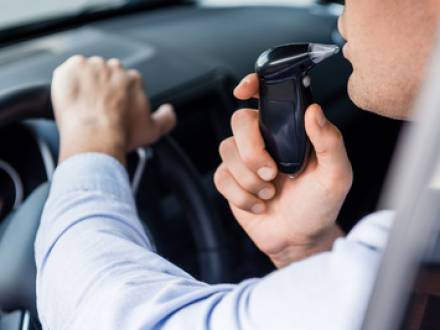 In the state of California, having an ignition interlock device (IID) following a DUI conviction may be much more than an inconvenience – it can be a mandated requirement to keep your driving privileges. An IID is a device installed on your vehicle that tests your breath, preventing you from starting the car if alcohol is detected on your breath.
In the state of California, having an ignition interlock device (IID) following a DUI conviction may be much more than an inconvenience – it can be a mandated requirement to keep your driving privileges. An IID is a device installed on your vehicle that tests your breath, preventing you from starting the car if alcohol is detected on your breath.
IIDs were once required only for repeat offenders, but California has expanded IID laws significantly to the point that some first-time DUI convictions will come with an IID requirement. An IID requirement may come from a judge as part of sentencing for a DUI conviction, or it can come from the California DMV. If you have questions regarding an IID mandate or need a solid defense for your DUI charges, speak to an experienced Sonoma, CA DUI lawyer.
How PBTs Affect Probable Cause for DUI Arrests in California
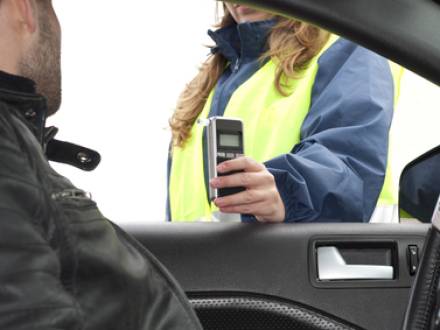 In the state of California, police officers often use a Preliminary Alcohol Screening (PAS) test, also known as a portable or preliminary breath test (PBT), during a DUI stop to help determine whether a driver is under the influence. Although this roadside breath test appears somewhat informal, it can play a crucial role in establishing probable cause for an arrest.
In the state of California, police officers often use a Preliminary Alcohol Screening (PAS) test, also known as a portable or preliminary breath test (PBT), during a DUI stop to help determine whether a driver is under the influence. Although this roadside breath test appears somewhat informal, it can play a crucial role in establishing probable cause for an arrest.
While most people are aware that refusing a breathalyzer test can result in a driver’s license suspension, few understand the differences between the PBT and the breathalyzer tests used at the police station. The handheld PBT device is used at the roadside to estimate blood alcohol concentration and is generally used prior to a formal arrest.
In fact, in many cases, the results of the PBT actually provide the officer with the probable cause needed for DUI charges (California Vehicle Code 23152(a) and 23152(b)). So, should you refuse a PBT – and if you do, are there penalties for doing so? It is important that you fully understand your rights in this situation and that you speak to an experienced Sonoma, CA DUI lawyer as quickly as possible following your DUI arrest.
Can a CDL Holder Lose His or Her Driving Privileges Forever?
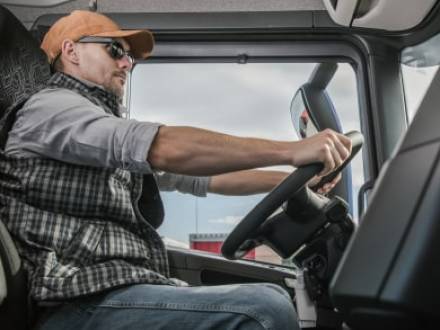 According to the Bureau of Labor, more than 1.7 million people across the nation work as large commercial truck drivers, and many more drive large buses, dump trucks, and large delivery trucks. California is second only to Texas for the number of commercial truck drivers, with 130,000. This means that eight out of every 1,000 jobs in the state belong to a truck driver.
According to the Bureau of Labor, more than 1.7 million people across the nation work as large commercial truck drivers, and many more drive large buses, dump trucks, and large delivery trucks. California is second only to Texas for the number of commercial truck drivers, with 130,000. This means that eight out of every 1,000 jobs in the state belong to a truck driver.
Large commercial trucks move the vast majority of the freight that is moved across the United States, more than any other form of transportation by far. A CDL holder (Class A and Class B) in the state of California must protect his or her driver’s license even more than most of us with a "regular" or Class C license. Those with a CDL rely on their license to make a living, so the loss of that license can result in significant adverse effects.
If your CDL license is in jeopardy, whether through a DUI or another issue, it is essential that you speak to a knowledgeable Richmond, CA CDL license attorney. We can examine your situation from every angle and then determine the best option for you.
What You Need to Know About New California DUI Laws
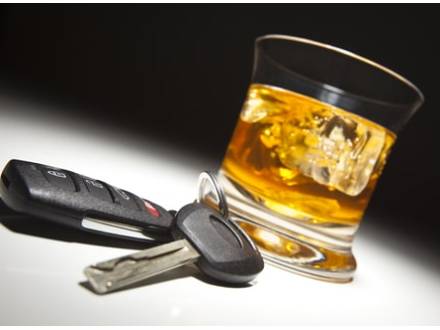 Although California already has fairly strict DUI laws, some became even harsher on the first day of 2025. Some of the amendments simply clarify administrative penalties, courtroom consequences of refusing a blood test, and legal procedures, while others change penalties associated with a DUI conviction. If you are facing DUI charges in the state, you should take these charges very seriously. An experienced Sonoma, CA DUI lawyer can help you navigate the new and old rules while answering your questions regarding the DUI trial process.
Although California already has fairly strict DUI laws, some became even harsher on the first day of 2025. Some of the amendments simply clarify administrative penalties, courtroom consequences of refusing a blood test, and legal procedures, while others change penalties associated with a DUI conviction. If you are facing DUI charges in the state, you should take these charges very seriously. An experienced Sonoma, CA DUI lawyer can help you navigate the new and old rules while answering your questions regarding the DUI trial process.
What Are Some of the Changes to California DUI Laws?
In the past, refusal of a blood test could lead to enhanced criminal penalties, such as additional jail time. Recent amendments removed the criminal penalties for blood test refusals, although breath and urine test refusals still result in enhanced DUI penalties. Despite this change regarding blood test refusals, a refusal can still be used as evidence in court, which can negatively affect a DUI case. Refusing a breath or urine test results in an immediate driver’s license suspension.
 415-729-7300
415-729-7300




